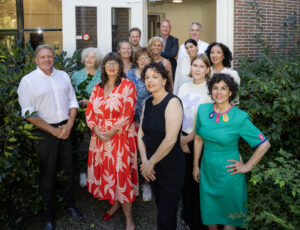We all have a strong need to belong. Cues signaling a threat to this need are perceived as aversive. During the first part of the seminar, Maurits van der Molen will present recent findings from his and other’s laboratories showing the impact of social rejection and exclusion on the central and autonomic nervous systems. These findings have been taken to suggest that the mechanisms involved in the processing of social exclusion and rejection overlap with brain areas implicated in the processing of physical pain. While at NIAS, Van der Molen and Arntz prepared a grant proposal (under review) aiming at testing the social-physical pain overlap hypothesis by taking advantage of Borderline Personality Disorder (BPD) individuals who have a remarkable relation with physical pain. Many of these patients injure themselves, often when under stress, and report that they don’t feel pain. At the same time, these people are highly sensitive to social rejection.
In the second part of the seminar, Arnoud Arntz will present recent findings that begin to help us understand the complexities of BPD, with a special focus on social and physical pain, and the relationship these might have with childhood traumatization and unsafe attachment. Until two decades ago, most therapists saw these people as untreatable. A remarkable development is the finding that new highly specialized treatments can bring about recovery from BPD. In one of the most successful treatments, so-called Schema Therapy, repair of damaged belonginess is very central. Successful treatment changes even very basic brain responses to threat cues, and is associated with attaining normal levels of quality of life. Lastly, Arnoud Arntz will present preliminary findings that even psychopaths might be treatable by this specialized psychological treatment.



